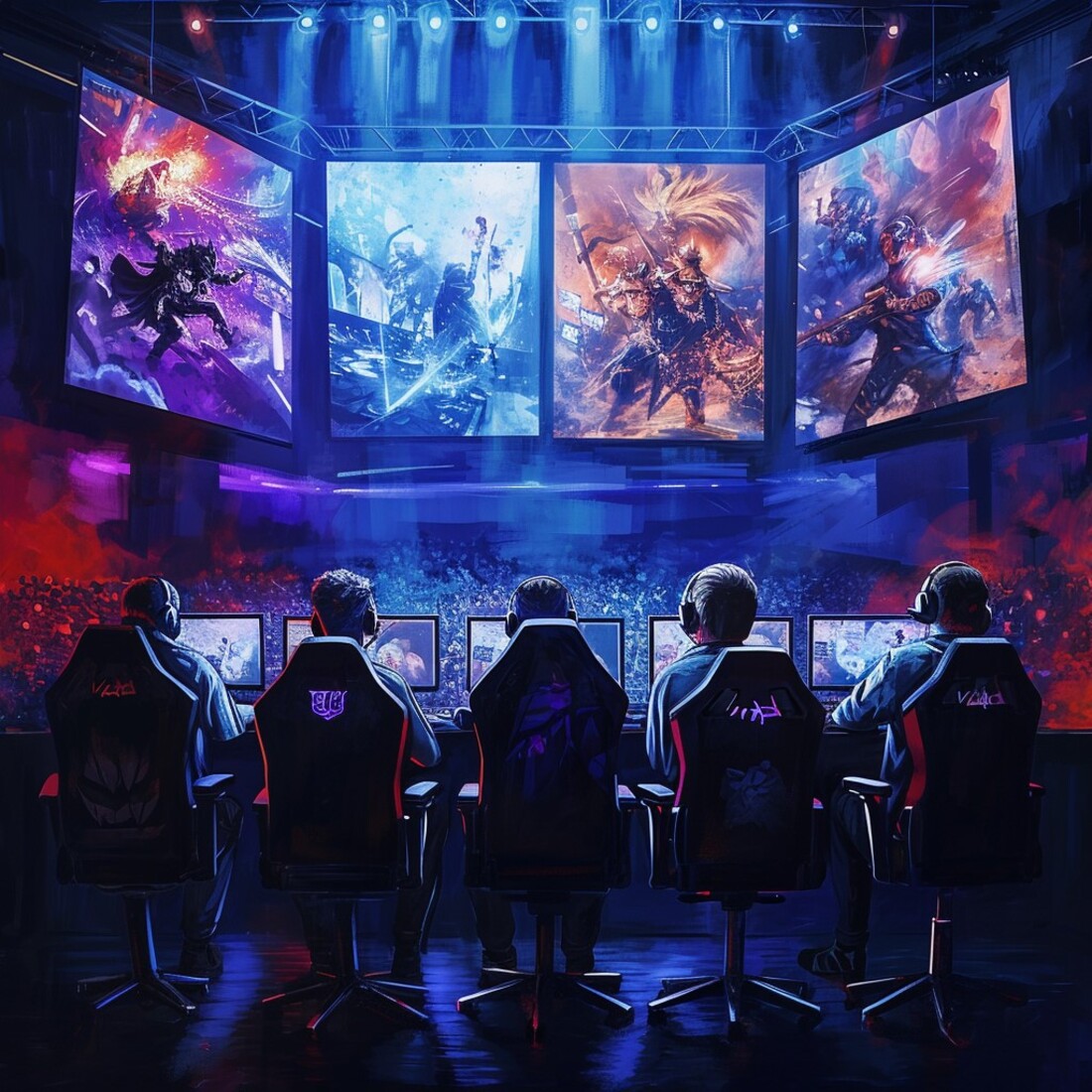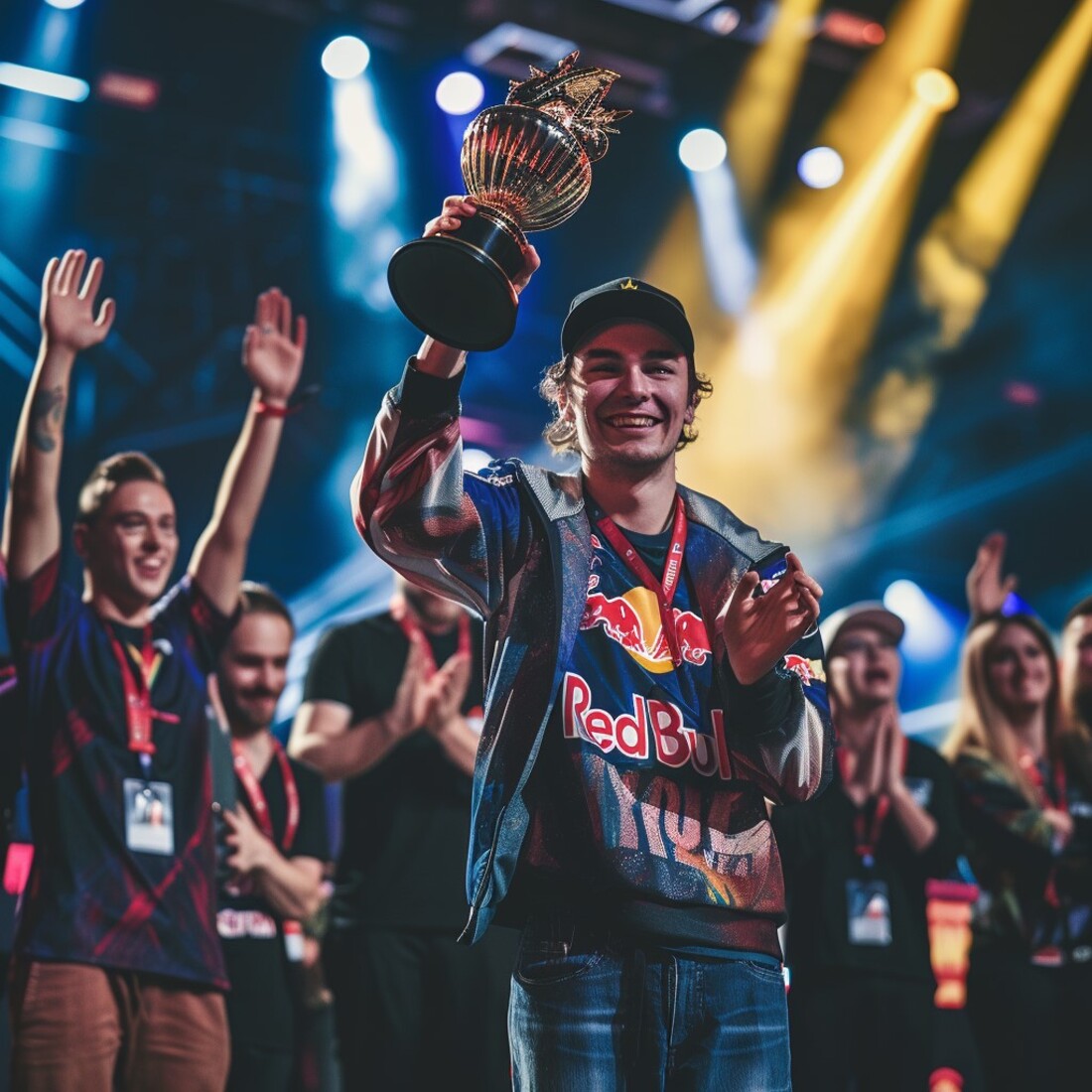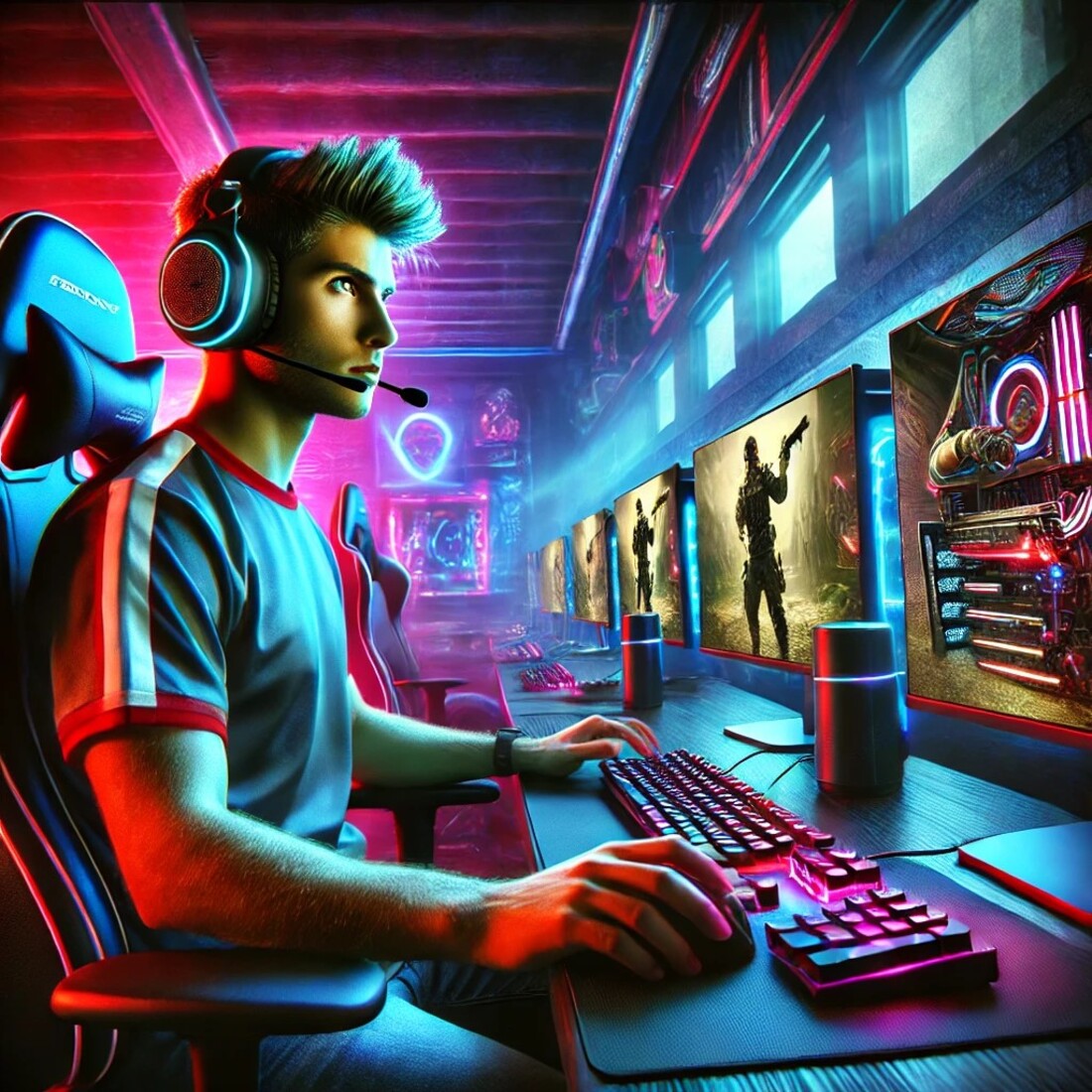Video games have burst onto the scene as more than just a form of entertainment—they’ve evolved into a full-fledged competitive phenomenon. With millions of players and spectators worldwide, the rise of eSports is reshaping our understanding of sports. From high-stakes tournaments with jaw-dropping prize pools to professional players training like traditional athletes, video games now stand shoulder-to-shoulder with established sports. This competitive revolution isn’t just about pixels and controllers; it’s a global movement fueled by strategy, teamwork, and unparalleled dedication.

What are video games
Video games are like modern-day playgrounds where creativity, strategy, and adrenaline collide in a digital wonderland. They’re interactive experiences that let players dive into virtual worlds, solve puzzles, fight epic battles, or even build entire civilizations. From solo adventures to multiplayer showdowns, video games blur the lines between entertainment and skill-building, offering something for everyone. The rise of eSports has added a competitive edge, showing how video games are a sport, complete with professional players, tournaments, and roaring crowds. They’re not just about fun anymore; they’re a dynamic mix of art, technology, and competition that’s reshaping the way we play and connect.
History of video game development
The history of video game development is like watching a tiny spark grow into a blazing firework show. It all started in the 1950s with simple experiments like Pong, a digital version of table tennis, and quickly evolved into immersive worlds and stories. From pixelated arcade classics in the ’80s to the lifelike graphics and massive online universes we see today, video games have come a long way. Advances in technology, like 3D rendering and motion capture, have turned them into art forms, while the rise of eSports answered the question of how are video games a sport, proving their competitive and skill-based nature. Video games have become more than entertainment; they’re a fusion of creativity, innovation, and global community-building.
Why video games are recognized as sports

Video games are recognized as sports because they’re no longer just about fun—they’re a battleground of skill, strategy, and teamwork, much like traditional sports. Players dedicate countless hours to mastering their craft, competing in high-stakes tournaments, and performing under intense pressure. Just like chess demands mental agility or basketball tests coordination, gaming pushes players to their limits with lightning-fast reflexes and razor-sharp focus. The rise of eSports has redefined how are video games a sport, with professional leagues, roaring fans, and prize pools that rival some of the biggest sporting events. Gaming is now a global arena where digital warriors showcase their talents and turn passion into professional careers.
Regular intensive training
Regular intensive training in gaming is like going to the gym for your mind and reflexes. Professional gamers put in hours every day honing their skills, studying strategies, and mastering split-second decision-making. It’s not just about playing for fun; it’s about discipline, focus, and pushing limits. Gamers analyze opponents, practice with teams, and refine their gameplay, just like athletes perfect their techniques on the field. The dedication answers how are video games a sport, as this level of commitment mirrors traditional athletic training, showing that success in gaming takes more than talent—it demands hard work, resilience, and a champion mindset.
High concentration and perseverance

High concentration and perseverance in gaming are like having laser focus and unshakable determination on a digital battlefield. Gamers must stay locked in, making split-second decisions while managing complex strategies and fast-paced action. It’s not just about pressing buttons; it’s about staying calm under pressure, adapting to surprises, and pushing through challenges. This level of mental toughness shows how are video games a sport, as it mirrors the grit and focus needed in traditional sports. Whether grinding through tough matches or perfecting new techniques, gamers know that success comes from staying sharp, staying strong, and never giving up.
Teamwork
Teamwork in gaming is like the engine of a well-tuned car—each player is a vital part, working together to keep things running smoothly and win the race. Success in competitive gaming isn’t about solo glory; it’s about synergy, communication, and trust. Players rely on each other’s strengths, cover weaknesses, and execute strategies as one cohesive unit. This collaboration shows how are video games a sport, as the same principles that make a soccer team unstoppable apply to gaming teams. Great teamwork turns individual skills into a powerhouse, proving that in gaming, just like in life, no one wins alone.
Tournaments and competitions
Tournaments and competitions in gaming are like the Super Bowl or the Olympics of the digital world, bringing together the best players to battle it out on a global stage. These events are high-energy, filled with passionate fans, intense rivalries, and jaw-dropping moments. From small local contests to massive international championships with million-dollar prize pools, they showcase the skill, strategy, and teamwork that define gaming. The excitement and structure of these events answer how are video games a sport, as they mirror the intensity and grandeur of traditional sporting competitions. They turn gaming into more than just play—it’s a spectacle, a career, and a lifestyle.
Competition
Competition in gaming is like the ultimate battlefield where skill, strategy, and nerves of steel collide. It’s not just about playing; it’s about proving who’s the best, whether you’re facing off in a one-on-one duel or as part of a powerhouse team. The drive to outplay opponents, adapt on the fly, and execute flawless moves is what makes gaming feel like a high-stakes sport. The intensity of these matches, along with the dedication of the players, shows how are video games a sport, bringing the same thrill and drama you’d find on any physical playing field. It’s not just a game—it’s a proving ground for champions.
Setting records

Setting records in gaming is like planting your flag on top of a mountain for the whole world to see. It’s about pushing the limits, achieving the impossible, and leaving a mark that others aspire to beat. Whether it’s clocking the fastest time, scoring the highest points, or pulling off jaw-dropping plays in tournaments, these achievements turn players into legends. The thrill of breaking barriers shows how are video games a sport, where the pursuit of greatness drives players to train harder, think smarter, and aim higher. In gaming, records aren’t just numbers; they’re milestones that inspire the next wave of champions.
Worldwide interest and a large fan base
Worldwide interest and a large fan base in gaming are like the roaring crowds in a packed stadium, but on a global scale. Millions of fans tune in to live streams, cheer for their favorite players, and follow every match like it’s the World Cup of eSports. The passion and energy from these communities show how are video games a sport, creating a connection between players and audiences that’s electric. From casual viewers to die-hard supporters, gaming has become a cultural phenomenon that brings people together across borders, proving that the virtual world has just as much heart as the physical one.
What kind of sport are video games
Video games are an intellectual sport where sharp minds and quick decisions take center stage. They demand strategic thinking, problem-solving, and lightning-fast reactions, much like chess on steroids. Players analyze opponents, plan intricate moves, and adapt to constantly changing situations, all while staying cool under pressure. This mental workout is a big part of how are video games a sport, showcasing that it’s not about physical strength but intellectual agility. Gaming pushes boundaries, proving that the brain can be as much of a muscle as anything else in the world of competition.
Most popular video games

The most popular video games have taken the world by storm, creating massive fanbases and defining the gaming industry. Each game brings something unique to the table, turning screens into playgrounds and battlefields. Here’s a quick list of the most iconic ones:
- Fortnite: A vibrant battle royale that’s all about building, surviving, and outlasting opponents in chaotic showdowns.
- League of Legends: A strategy-packed MOBA where teamwork and tactical thinking dominate.
- Call of Duty: The ultimate first-person shooter delivering fast-paced action and high-stakes competition.
- Minecraft: A creative sandbox where imagination meets exploration in blocky brilliance.
- Dota 2: A legendary eSports game showcasing how are video games a sport with its intense matches and strategic depth.
- Counter-Strike: Global Offensive: A tactical shooter that’s been the backbone of competitive gaming for years.
- Valorant: A fresh take on team-based shooters, combining precision gunplay with unique character abilities.
These games prove that gaming isn’t just play—it’s a global phenomenon where players show skill, creativity, and passion every day.
The journey of video games into the realm of sports is a testament to the ever-evolving nature of competition. eSports has proven that skill, passion, and teamwork transcend traditional boundaries, creating a vibrant and inclusive new frontier for athletes and fans alike. As the competitive gaming revolution continues to grow, it’s clear that video games are no longer just a pastime—they’re a thriving, legitimate sport redefining what it means to play and win on the global stage.
